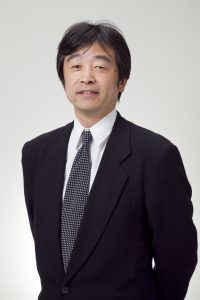What is the Graduate School of Human and Socio-Environmental Studies?
Meeting the Challenges Facing Humanity and Society
History of the Graduate School of Human and Socio-Environmental Studies
In the 21st century, humanity is entering a period of turbulence. As symbolized by climate change, we need to be more aware of our planet’s finiteness and think about the natural environment here on Spaceship Earth. The social environment we have created is becoming increasingly problematic. We need solutions to problems with the economy, politics and law, from the individual, family or community level to the municipal, national and global level, such as reducing war, starvation and poverty, major earthquake disasters, nuclear accidents, natural disasters, injustice and discrimination.
In April 2006, Kanazawa University established the Graduate School of Human and Socio-Environmental Studies, a graduate school offering an integrated master’s and doctoral program.
The three former master’s courses run by the School of Humanities, School of Law, and School of Economics were combined into a single master’s course, which was further combined with the existing socio-environmental studies doctoral course.
We felt that developing expertise in the humanities and social sciences was essential in order to tackle the challenges confronting humankind and problems of day-to-day human life. We also thought it vital to have broad-based interdisciplinary collaboration with the natural sciences.
The Graduate School of Human and Socio-Environmental Studies is a new organization that aims to solve the problems of a new era. We strive to provide an educational and research environment to make your hopes and dreams come true. We hope you will make full use of this organization, taking on the challenge of our ambitious project to create a new academic discipline and solve problems. We look forward to your participation.
Master’s Course – Four divisions linked to undergraduate education
In the Master’s Course, we have established four divisions. First, the specialized education in humanities, economics, regional development studies and international studies established in the undergraduate program is passed on to four divisions, the Division of Humanities, the Division of Economics, the Division of Regional Development Studies and the Division of International Studies, which train advanced specialists. From April 2018, we established a new Educational Support Development Course in the Division of Regional Development Studies. The education studies in our undergraduate program are closely coordinated with this Educational Support Development Course. Also, our legal studies are closely coordinated as usual with the Division of Law and Politics (which stopped recruiting in 2019 and was relaunched as the Graduate School of Law Division of Law and Politics (Master’s Course) in April 2020).
Students can earn a Master’s degree in literature, economics, business administration, regional development studies, international studies, and science. In the Division of Economics and Division of Regional Development Studies, there is also a one-year, short-term attendance program leading to a master’s degree while working full-time.
Doctoral Course – Specialized and interdisciplinary research
The goal of the Doctoral Course is to develop highly specialized professionals who have the necessary research skills to work as university lecturers and researchers at private think tanks as well as in business and local government.
All doctoral students belong to one division, the Division of Human and Socio-Environmental Studies, but are divided into three courses, a Humanities Course, Law and Politics Course and Socio-Economics Course. This enables the graduate school, which is the parent body examining doctoral theses, to assign the most suitable faculty experts to review the various research conducted within the broad area of human and socio-environmental studies.
In addition to students progressing from the Master’s Course, the Doctoral Course welcomes a diversity of students including working adults such as civil servants and company employees, and, increasingly in recent years, overseas students. Doctoral degrees are available in socio-environmental studies, humanities, law, political science, economics, and science. Many doctoral graduates take up research and teaching posts at universities or go on to work in the public and private sectors.


